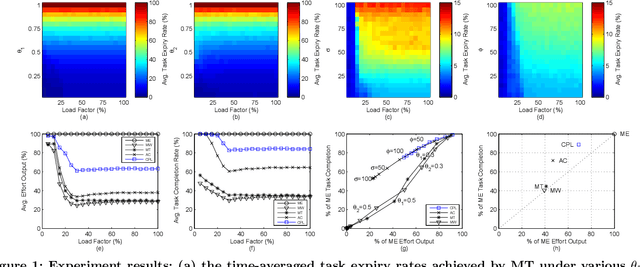Yongqing Zheng
DAG-AFL:Directed Acyclic Graph-based Asynchronous Federated Learning
Jul 28, 2025Abstract:Due to the distributed nature of federated learning (FL), the vulnerability of the global model and the need for coordination among many client devices pose significant challenges. As a promising decentralized, scalable and secure solution, blockchain-based FL methods have attracted widespread attention in recent years. However, traditional consensus mechanisms designed for Proof of Work (PoW) similar to blockchain incur substantial resource consumption and compromise the efficiency of FL, particularly when participating devices are wireless and resource-limited. To address asynchronous client participation and data heterogeneity in FL, while limiting the additional resource overhead introduced by blockchain, we propose the Directed Acyclic Graph-based Asynchronous Federated Learning (DAG-AFL) framework. We develop a tip selection algorithm that considers temporal freshness, node reachability and model accuracy, with a DAG-based trusted verification strategy. Extensive experiments on 3 benchmarking datasets against eight state-of-the-art approaches demonstrate that DAG-AFL significantly improves training efficiency and model accuracy by 22.7% and 6.5% on average, respectively.
Ethically Aligned Opportunistic Scheduling for Productive Laziness
Jan 02, 2019
Abstract:In artificial intelligence (AI) mediated workforce management systems (e.g., crowdsourcing), long-term success depends on workers accomplishing tasks productively and resting well. This dual objective can be summarized by the concept of productive laziness. Existing scheduling approaches mostly focus on efficiency but overlook worker wellbeing through proper rest. In order to enable workforce management systems to follow the IEEE Ethically Aligned Design guidelines to prioritize worker wellbeing, we propose a distributed Computational Productive Laziness (CPL) approach in this paper. It intelligently recommends personalized work-rest schedules based on local data concerning a worker's capabilities and situational factors to incorporate opportunistic resting and achieve superlinear collective productivity without the need for explicit coordination messages. Extensive experiments based on a real-world dataset of over 5,000 workers demonstrate that CPL enables workers to spend 70% of the effort to complete 90% of the tasks on average, providing more ethically aligned scheduling than existing approaches.
 Add to Chrome
Add to Chrome Add to Firefox
Add to Firefox Add to Edge
Add to Edge